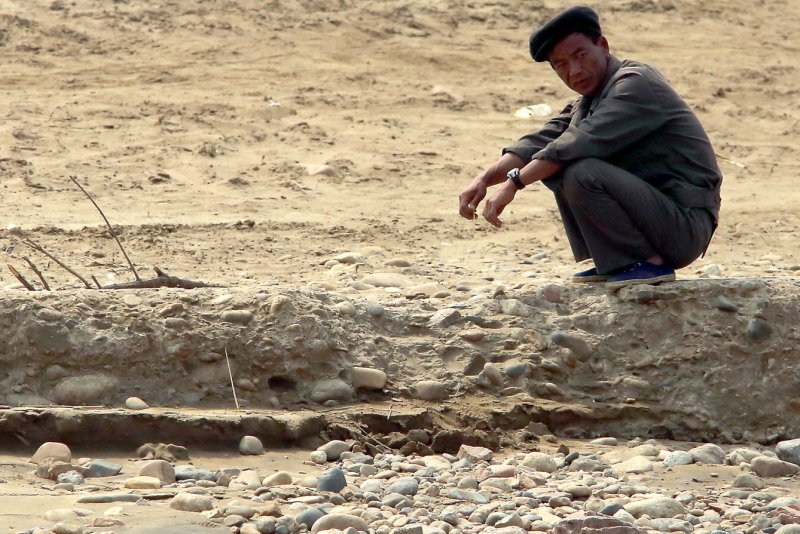A North Korean waits with his tractor for a small pontoon to cross a tributary on the banks of the Yalu River near Sinuiju, across the Yalu River from Dandong, China's largest border city with North Korea. North Korean defectors who have lived in China for ten or more years are ineligible for resettlement benefits from South Korea. Photo by Stephen Shaver |
License Photo
SEOUL, Nov. 25 (UPI) -- The population of North Korean defectors in South Korea continues to grow, but an increasing number of new arrivals are falling through the cracks and are ineligible for the benefits that come with resettlement.
Many of these defectors did not apply for asylum within a year of their arrival, and South Korea does not provide them with the same social welfare benefits they confer to other North Korean refugees, South Korean newspaper Hankyoreh reported on Friday.
Reasons for failing to apply for asylum before the deadline vary by individual, but one woman, Jo Amugae, 44, told Hankyoreh she simply did not know. Jo, like many others, also lived in China for several years where she was able to procure Chinese citizenship, and in 2002 married a South Korean man and moved to the South.
Jo divorced after 7 years of marriage and has two daughters, and it wasn't until 2012 that she began considering notifying the South Korean government of her true identity as a North Korea-born national. Jo said her ex-husband suggested the government would deport her if she came forward, but true disappointment came later, when she was told she was a "non-protected" North Korean.
According to Seoul's Unification Ministry, there are now 172 "non-protected" North Korean defectors, and unlike peers, are ineligible for benefits such as resettlement money, housing subsidies and vocational training. On average, a North Korean defector can receive $6,000 in resettlement funds, and $11,300 to go toward housing. Seoul also provides up to $17,000 in wage subsidies to private employers who hire defectors.
Seoul also designates "non-protected" status to North Korean defectors who have a proven criminal record, and to individuals who lived in China for at least 10 years.
Yoon Yeo-Sang, president of the Database Center for North Korean Human Rights, told Voice of America the decision was made by Seoul, while keeping in mind policies acceptable to South Korean taxpayers.
Jung Jae-ho, also of NKDB, said the policy should change, as many with non-protected status need education, training and health care. Providing those resources could send the right message to North Koreans about South Korea, Jung said.















